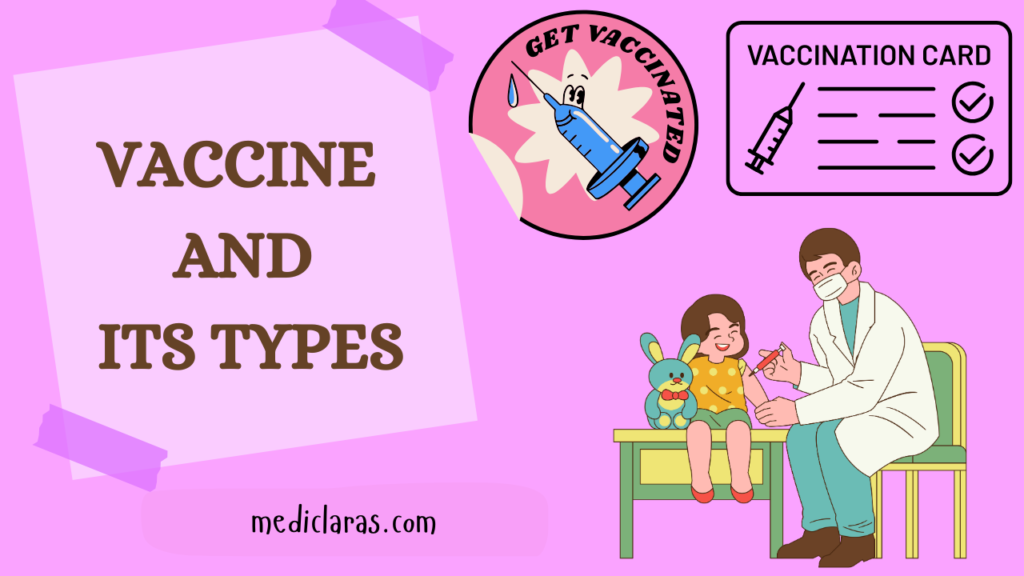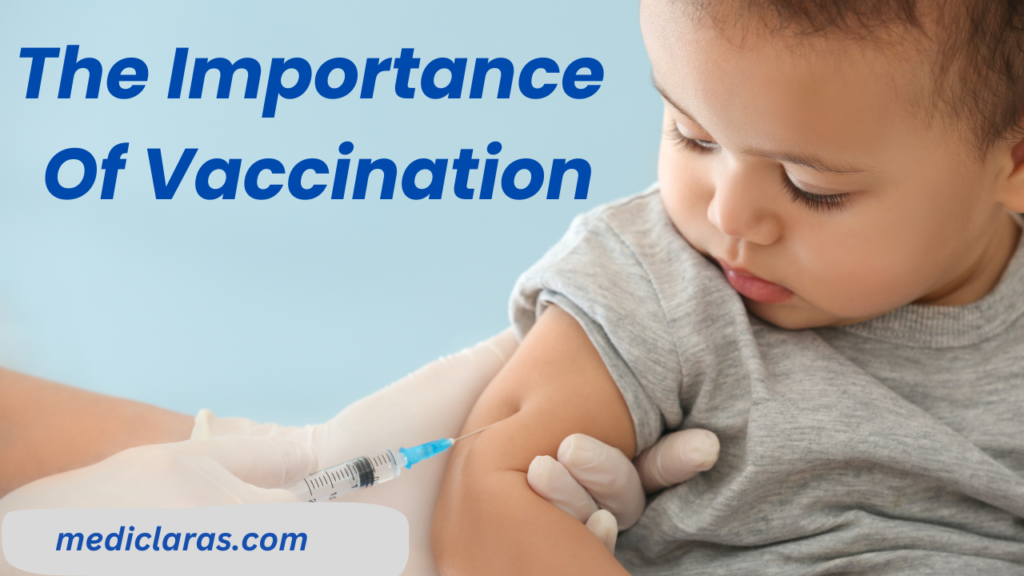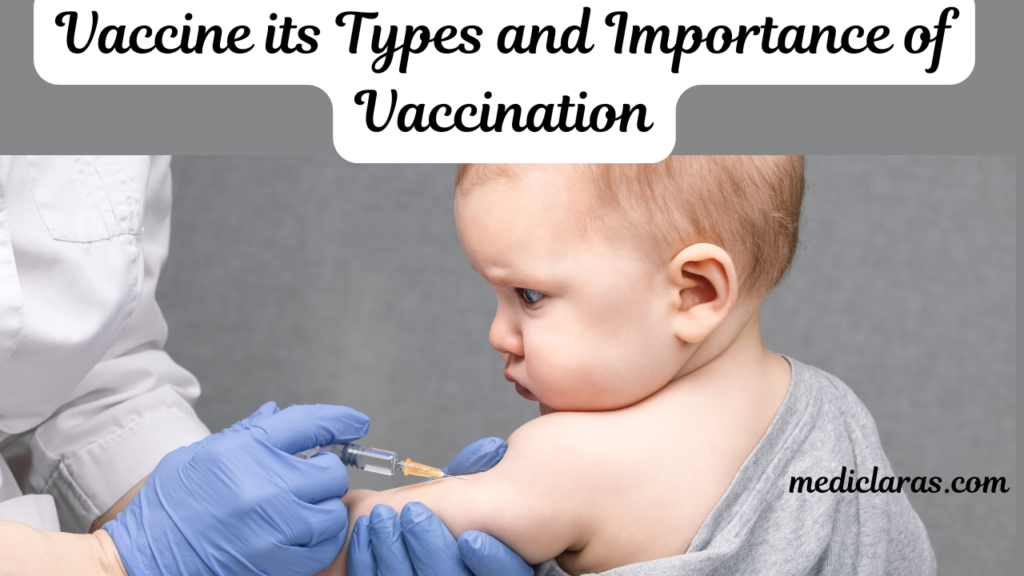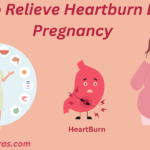Vaccine Its types And Importance of Vaccination
The most powerful advancement in modern science are vaccines, playing a crucial role in disease prevention and saving millions of lives around the globe. They work by training the immune system to identify and combat pathogens. Vaccines limit the infectious disease but immunization of the host may respond against the pathogens. In this article vaccine and its types and importance of vaccination is discussed.
What is a Vaccine?
Vaccine means any preparation of biological origin that confers immunity against some specific diseases. It induces immune stimulation to produce specific substances, mainly antibodies which can recognize and respond in a manner that neutralizes harmful pathogens. Vaccines offer protection to individuals and promote immunity within the community against the transmission of disease.

Types of vaccines
Different types of vaccines exist each for the treatment of a particular disease falling are the main types of vaccines;
1.Live Attenuated vaccines
This type of vaccine is made from weakened live pathogens that cause the infection. These vaccines stimulate a natural infection and produce strong and long lasting immunity identical to that produced by actual infection.
Common uses
● Measles, Mumps and Rubella (MMR): Provide immunization against these three infections
● Varicella (chicken pox):Helps to prevent chickenpox and its associated complications.
● Yellow fever :Recommended for travelers heading to areas where yellow fever is common.
Advantages
Usually such vaccines provide strong and long lasting immunity.
May be effective in one or two doses.
Limitations
Not for use in immune-compromised persons.
Require special storage and handling.
2.Inactivated vaccines
An inactivated vaccine contains killed or inactivated pathogens therefore rendering the vaccine safe for persons with compromised immune systems.
Common uses:
● Polio(IPV): provide passive protection from polio virus
● Hepatitis A: helps to prevent liver infection due to hepatitis a virus.
● Rabies: For prevention and treatment after exposure.
Advantages
Generally say for the majority of individuals.
More stable and easier to store as compared to live vaccines
Limitations
Open required multiple doses or boosters to maintain immunity.
3. Subunit, recombinant and conjugate vaccines
These vaccines activate an immune response by using protein or sugar components of pathogens. They are very safe, because they have no live component.
Common uses
- Hepatitis B: prevent liver infection due to the hepatitis B virus
- Human papillomavirus (HPV): prevent cervical and other cancers caused by HPV.
- Pneumococcal vaccines: protect from bloodstream infections ,pneumonia and meningitis.
Advantages
Useful for immune-compromised individuals.
Provides specific immunity.
Limitations
Booster shots may be needed.
Immunity may not be as strong as that from live vaccines.
4. Toxoid vaccines
Toxoid vaccines fight against diseases caused by bacterial toxins. These vaccines uses inactivated toxins, or toxoids ,to stimulate immunity.
Common uses
- Tetanus: This vaccine helps to prevent lock jaw and muscle stiffness.
- Diphtheria: Shields against serious respiratory illness.
Advantages
Very effective in preventing toxin related diseases.
Commonly harmless for the majority of individual.
Limitations
Booster doses are commonly needed.
5.mRNA Vaccines
These vaccines represent a revolutionary approach, utilizing genetic material to guide cells in creating a protein that activates an immune response. They have played a crucial role in addressing new health issues.
Common uses
Covid-19: protection against SARS- CoV-2 virus.
Advantages
High effectiveness
Quick development and manufacturing.
Limitations
In some cases it requires ultra cold storage.
As a newer technology long term data is still being gathered.
6.Viral vector vaccines
These vaccines utilized a modified virus that is not the one causing the disease to deliver genetic material into the body. This, in turn, will initiate an immune response.
Common uses
- COVID- 19: offers protection against SARS- CoV-2.
- Ebola: Effective in managing Ebola virus outbreaks.
Advantages
Good immune response
Quick to develop
Limitations
Existing immunity to the vector virus might lower effectiveness.

The importance of vaccination
1. Provides protection against diseases: vaccines prevent from diseases such as polio, measles, tetanus ,influenza and COVID-19.
2. Stop spread of disease: Vaccination help in prevention from spread of infectious diseases. For achieving her immunity a certain percentage of population must be vaccinated.
3. Save lives: millions of lives have been saved around the world through vaccination. Diseases like smallpox has effectively been eradicated through global vaccination programs.
4. Cost effective healthcare: By preventing diseases vaccination reduces the healthcare costs .
5. Encourage global health Equity: Vaccination campaigns target communities, ensuring that everyone has access to life saving vaccines, regardless of socioeconomic status.
6. Decrease antibiotic resistance: Vaccines cut down the need for antibiotics by preventing bacterial diseases. This will help fight against the growing global crisis of antibiotic resistance that threatens life saving treatments.
7. Boost economic stability: Vaccination programs helps to avoid epidemic outbreaks thereby making economics stability.
8. Protect future generations: Universal vaccination programs provided an absolute elimination or reduction from many disorders which were once a source of major suffering.
How do vaccines work?
Vaccines work by helping the immune system to identify harmful pathogens without causing diseases. Here’s how the process works:
1. Exposure to vaccine: Antigens (weekend , inactivated ,or synthetic part of a pathogen) introduced into the body.
2. Activation of immune system: Person immune system identify the antigens as foreign substance and start producing antibodies to combat them.
3. Formation of memory: The immune system memorize the pathogen. The body quickly respond to the passages and neutralize the its thread when exposed in the future.



